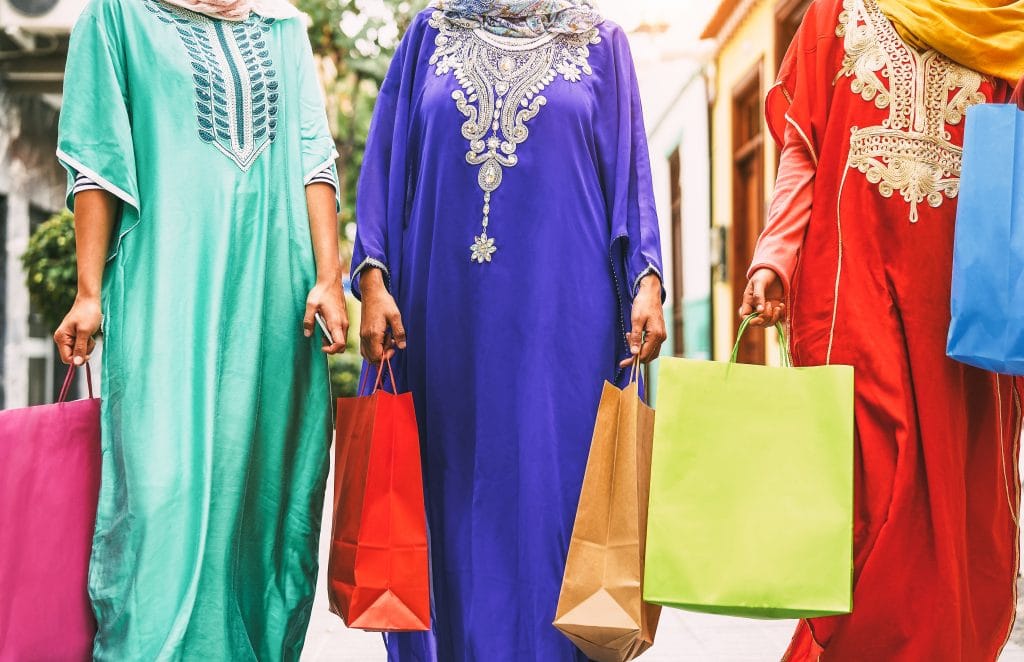Retailers are increasingly looking at ways to become more culturally inclusive by hiring a diverse workforce that truly represents the consumer demographic. The UK is renowned for acknowledging cultural and religious public holidays other than Christmas and Easter – such as Eid, Diwali, Vaisakhi, Chinese New Year and Hanukkah – but diversity does not stop at the front line.
It’s no secret that today’s shoppers do not always feel valued for who they are. The good news is that retailers are making strides in inclusion and customers are noticing, which in turn creates a tremendous opportunity.
Cultural and religious holidays are an enormous benefit for retailers because it’s the time when they can represent what they stand for, and by offering products that address shoppers’ diversity, they simultaneously become more inclusive and attract new customers.
“Retailers need to understand cultural needs and preferences”
The question remains, of course, as to how retailers can be culturally inclusive to their customers and staff without appearing tokenistic.
Dr Amna Khan, a senior lecturer in consumer behaviour and retailing at Manchester Metropolitan University, said: “Retailers need to understand cultural needs and preferences.
“This can be applied to food consumption such as halal versus non-halal foods, but can be applied more wider to dress codes, which consider religious sensitivities such as the desire to dress modestly by Muslims.”
There’s also no doubt that customers feel more comfortable doing business with retailers whose employees reflect the diversity of their own communities. According to Khan, customers prefer offerings that are tailored to their lifestyles and beliefs.
“Adapting marketing messages, products and services to religious and cultural diverse consumers represents an untapped opportunity in retailing,” she told Retail Gazette.
With Ramadan currently in full swing, Natalia Skaloud, the customer engagement consultant at Capgemini Invent, said that although retailers might expect food-related sales to decrease, sales in fact surge during this month in comparison to others – largely due to the change in daily habits of Ramadan observers.
“Although Muslims fast throughout the day, they come together to break the fast at dusk for a meal called Iftar,” she said.
“It’s precisely the activities around Iftar that lead to large changes in consumer behaviour and a rise in related sales.
“As with any festive period, there is a noticeable shift in consumer behaviour from what they shop, to how and when they shop”
“Consumers shift towards making more bulk purchases needed for large family meals. Understanding such a shift in consumer behaviour and patterns is key for retailers to not only improve their sales opportunities but also better engage with and cater towards a large part of their customer base.”
Skaloud added: “As with any festive period, there is a noticeable shift in consumer behaviour from what they shop, to how and when they shop, bringing about a huge engagement opportunity for brands and retailers.
“Whilst UK retailers have historically celebrated the religious festivals of Christmas and Easter, less attention has been paid to Ramadan.”
Business consultant Naeem Arif told Retail Gazette that retailers should observe the popularity of Christmas, a time when shoppers plan to spend money three months beforehand, and they should leverage other holidays such as Eid and Diwali in the same matter.
“In a society where Christmas is a holiday event more than a religious event, it is not surprising when other cultural events like Valentines day are also great opportunities for money to be spent”
“You have to believe that some of that spend is for the sake of it pleasure and not the necessity,” he said.
“In a society where Christmas is a holiday event more than a religious event, it is not surprising when other cultural events like Valentines day, Mothers Day, Black Friday are also great opportunities for money to be spent not only on the high street but across the economy.”
Meanwhile, London Designer Outlet (LDO) general manager Sue Shepherd said the semi-outdoor shopping centre is “conscious of serving a diverse local community and an increasing number of international visitors from a wide range of different cultures”.
She said tax-free sales from tourists at LDO went up 3.4 per cent during the first quarter of 2019. She partly credited this to initiatives like having fluent foreign language speakers in Guest Relations, as well as cultural awareness training for all brand partners and halal and vegetarian dining options.
“This is important so our retailers see added value from increased dwell times, higher frequency of visits by residents in our catchment and ensuring everyone benefits from a culturally inclusive experience,” Shepherd told Retail Gazette.
She also highlighted LDO’s “Light Up the Night” fusion of Bonfire Night and Diwali celebrations, which attracted 50,000 visitors last November, as proof that the centre embraces many cultural festivals and celebrations and wants to show customers how it values them.
Nevertheless, Khan believes that in order for retailers to appear genuine rather than tokenistic, they must build and maintain an “authentic relationship” with their consumers by understanding their needs and desires and sharing their cultural experiences with them.
“This means not just taking advantage of a cultural festivity as it takes place but partaking in the experiences that lead up to it and understanding the consumer journey around it too,” she said.
Click here to sign up to Retail Gazette‘s free daily email newsletter


















